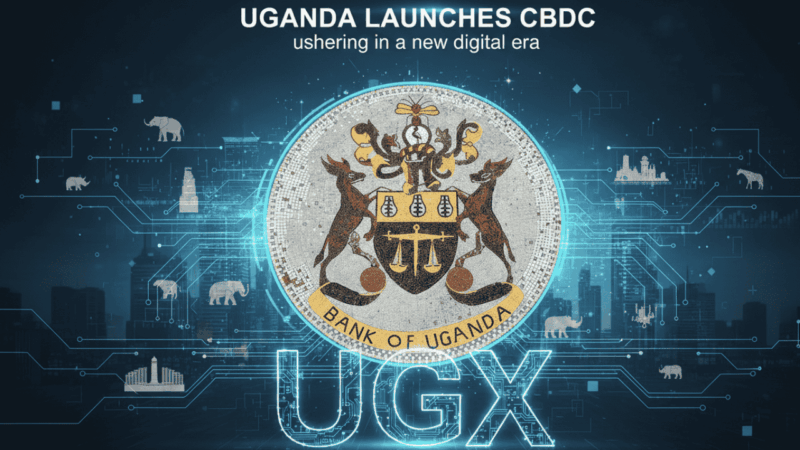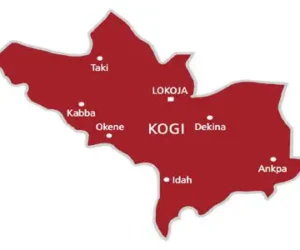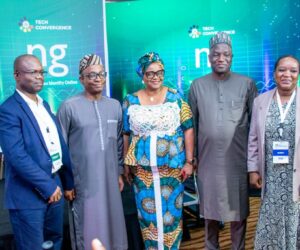Uganda has officially entered the global digital currency arena with the rollout of its first Central Bank Digital Currency (CBDC). The move places the East African nation among a growing list of countries experimenting with or deploying government-backed digital money, a development expected to reshape the country’s financial sector.
The project is executed in partnership with the Global Settlement Network (GSN) and Diacente Group, the developer of Uganda’s Karamoja Green Industrial and Special Economic Zone (GISEZ).
Together, they are launching what is being described as the world’s most advanced tokenised economy, underpinned by $5.5 billion in real-world infrastructure.
This marks a watershed moment for the country’s ambition to modernise its economy through blockchain technology and digital finance.
For the first time, Ugandan citizens and businesses will engage in a tokenised ecosystem that digitises value flows across key industries like energy, mining, agriculture, logistics, and finance, creating a more inclusive and efficient economic system.
Uganda’s CBDC is piloted on GSN’s permissioned blockchain network. Unlike cryptocurrencies such as Bitcoin and Ethereum, Uganda’s digital currency is fully backed by its treasury bonds, ensuring both stability and credibility.
This linkage between a government-issued digital currency and tangible state assets represents a critical step in bridging traditional finance and the digital economy.

According to the partners, the GSN-Diacente collaboration aims to create a seamless environment where assets, services, and payments can interact digitally and securely.
The network’s design enables transparent settlements, instant transactions, and programmable finance, all under a regulated framework that aligns with Uganda’s central banking policies.
GSN describes the system as “an open, inclusive, and efficient economic engine built from the ground up.”
Leveraging tokenisation, the process of converting real-world assets into digital tokens on a blockchain, Uganda can bring infrastructure, trade, and community development into a shared, interoperable financial layer.
The $5.5 billion Karamoja Green Industrial and Special Economic Zone (GISEZ) serves as the backbone of this initiative. Positioned as one of Africa’s most ambitious development projects, the zone integrates renewable energy production, smart logistics, manufacturing, and advanced digital infrastructure.
Tokenising the ecosystem means every asset can be represented and transacted digitally, offering investors and participants access, transparency and liquidity.
Uganda’s entry into the CBDC race
Globally, more than 130 countries are exploring or piloting Central Bank Digital Currencies, according to the Atlantic Council’s CBDC Tracker. Leading economies like China, Nigeria, and India have already rolled out digital currencies at varying scales, while others, including the United States and the European Union, are still in testing or policy stages.
Uganda’s move, therefore, places it among the early African adopters, following Nigeria’s eNaira and Ghana’s e-Cedi. However, the Ugandan model stands out for its direct integration with a large-scale industrial and economic development project, a model that ties digital finance innovation to real economic growth rather than standalone fintech experimentation.


Experts suggest this approach could offer a more sustainable path toward digital inclusion. Embedding the CBDC within a tokenised industrial ecosystem, means that Uganda is effectively linking digital finance to productive sectors, job creation, and foreign investment.
GSN’s permissioned blockchain provides an additional layer of control and compliance. Unlike public blockchains that are open to anyone, a permissioned system allows the Central Bank and authorised financial institutions to oversee transactions, maintain monetary integrity, and prevent illicit activity.
This regulatory alignment is crucial as the country navigates its transition to digital money. It ensures that the CBDC rollout complements the existing banking framework rather than disrupting it. The inclusion of treasury-backed reserves also strengthens public confidence, setting Uganda apart from purely experimental CBDC pilots elsewhere.
Diacente Group, which is spearheading infrastructure development within the GISEZ, views tokenisation as a cornerstone of economic transformation. Its partnership with GSN signals a shift toward building economies where digital and physical value coexist seamlessly.
In practice, this means Ugandan farmers could receive payments instantly for produce using the CBDC, logistics companies could track and settle cross-border shipments in real time, and investors could participate in infrastructure financing through fractionalised, blockchain-based instruments.
Africa’s expanding digital finance frontier
Africa has become a focal point for CBDC experimentation and blockchain innovation. The continent’s mobile-first financial culture provides fertile ground for digital currency adoption. Uganda’s entry into this space reinforces its commitment to leveraging technology for inclusion and efficiency.
By coupling digital currency with industrial development, Uganda sends a clear signal that blockchain can serve not just speculative interests but real economic growth. The rollout is expected to attract foreign direct investment, accelerate financial digitalisation, and enhance transparency across the public and private sectors.


While regulatory and technological challenges remain, including public education, interoperability with existing payment systems, and data protection, Uganda’s pilot marks a bold step toward the future of digital finance in Africa.
With the GSN partnership, Uganda is positioning itself as a pioneer in merging real-world development with digital transformation. The launch of the CBDC is more than a monetary experiment; it’s part of a broader vision to build a resilient, inclusive, and technologically advanced economy.
As the pilot expands and the infrastructure matures, Uganda could serve as a model for other developing economies seeking to leapfrog traditional systems and embrace a fully digitised value chain.
If successful, the initiative will redefine Uganda’s economic trajectory and demonstrate how blockchain-driven tokenisation can anchor the next generation of sustainable development in Africa.








